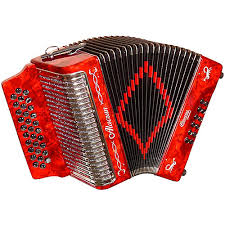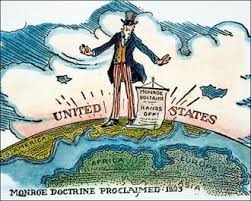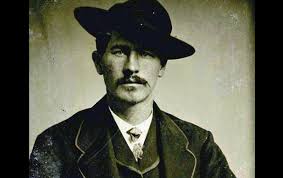JANUARY 13 — 1814 Lafitte’s pirates continue fighting in the Battle of New Orleans;2017 U.S. and China universities team up to rank most popular emoji1902European blockade begins in Venezuelan Crisis.
JANUARY 13
1814 – Lafitte’s pirates continue his fight in the Battle of New Orleans.
Yo ho ho and a big bottle of Jean Lafitte, born maybe in either France or St. Domingue was born sometime around 1780, but nobody seems to know for sure.
What we do know is that he was that he probably did not fight in the frontlines at that battle in the War of 1812.
Here’s another spoiler alert, the Kentucky riflemen showed up to the battle without rifles.
But that’s another story.
Jean Laffite was a shiver-me-timbers swashbuckler who set up a colony on the small islands of Barataria which consisted of his gang of thugs. He and his brother Pierre had a blacksmith shop that was used as a front for smugglers and slavery. The British had asked him to join their alliance against the Americans, as Laffitte would be considered a valuable asset since he knew the area, had some ships and trained fighters onboard. But while the British were destroying American troops at sea, land battles was a whole different story, with the exception of Detroit and Canada. Old Hickory Andrew Jackson was doing a fine job of repelling British troops in the South near the Mississippi, and though he was outnumbered in New Orleans, he was heading there anyway.
Lafitte suspected that the victory of the battle would ultimately be won by America, so he turned down the British offer of joining their army in exchange for British owned land west of the Mississippi. Instead, he accepted Old Hickory’s proposal, which was to fight for America and in exchange all hi men would be pardoned for past crimes.
Avast ye
!To Latiffe, this was the better deal. With Laffit assisting the Americans, Old Hickory could defeat the invading British on land at New Orleans. Meanwhile in the world, Napolean Bonaparte was defeated by the Russians, France and England signed a peace treaty, and the United States had beaten the British once again, and the two countries signed the Treaty of Ghent on the day before Christmas, 1814.
Yet Old Hickory and Laffitte’s men kept fighting, not getting the news until two months for the memo that read peace was declared, to reach the east coast by ship, then to the south by horse. Ahoy matie! Once the fighting stopped, Laffitte went back to his old hornswaggling ways making his enemies dance the hempin jig when needed.
He reportedly had a wife and child and was forced in 1820 to leave his fortress at Galveston. There was never any real evidence that he served at the front lines during the famous Battle, and his involvement may have been from a command position. These days, Lafitte’s Blacksmith Shop sits on Bourbon Street.
Legend has it it was Pierre’s shop that Jean used for sanctuary to get away when things got a little rough during some of his transactions on Royal Street.
1929 –Wyatt Earp dies in Los Angeles. This much we know to be true, unlike just about everything else about this man. We all know about the gunfight at the OK corral, which he’s no doubt best known for, but Wyatt had plenty of other stories. He was born in Illinois and moved to Iowa with his brothers James and Virgil. He became a constable in Lamar, Missouri, married Urilla Sutherland, was accused of horse theft in the Indian territory, allegedly worked as a pimp at a “salon “in Peoria, Ill. then made his way to Tombstone where all that history took place. Now let’s talk about the claims Wyatt Earp made to his biographer, Stuart Lake.
Supposedly Earp did some buffalo hunting in 1871 and 1872, even though he was in jail in Peoria at that time. Earp took credit for the Clay Allison incident, where he supposedly stopped a couple rowdy cowboys, though the credit most likely goes to Chalk Beeson and Dick McNulty. Then there’s Ben Thompson, a notorious Texas gunmen who held an entire city at bay using a Henry rifle, and Earp suggested 50 years later he arrested Thompson, but there is no documentation confirming this.
Killing Curly Bill and Johnny Ringo probably didn’t happen either. All interesting stories, however, one thing we know for sure, he and his brothers along with Doc Holliday took out the Mclaury gang, though most of them would be ambushed in revenge later on. Not Wyatt. He moved around on the lam until he settled in Los Angeles, where the film industry took interest in his tales of the Wild West. Earp died at age 80 on January 13, 1929. In patent news…

1928 – First TV sets installed in private homes. American inventor Ernst Frederick Werner Alexanderson, who worked for General Electric, had pioneered the Alexanderson alternator which was a long wave transmitter used for radio and television. In 1928, GE and RCA businessman David Sarnoff installed three test television sets in Schenectady New York to demonstrate the first home television receiver. If you missed out on that one, you didn’t miss much. The test broadcast from RCA and GE displayed on a 1.5 square inch screen, a woman smoking and man playing a ukulele. I’m not sure which is worse. And the era of the couch potato began.

1854 — Anthony Foss invents the accordion, though some sources indicate he patented it sometime in June of that year.

1902 – European blockade begins in the Venezuelan crisis of 1902-03. Germany had control over Venezuela until a civil war broke out in 1892 and another one in 1898. Venezuela owed some money because of this not just to Germany but other European powers as well, but Venezuelan president Cipriano Castro refused to cough up any money, relying on the Monroe Doctrine for protection. So much for the Colossus of the North. Anyway, Germany and Italy sent a naval blockade over there. America in return sent a bigger ship threatening war against Germany if Germany invaded Venezuela.
The Europeans backed down and US President Teddy Roosevelt began an arbitration to work this out peacefully. This led to Venezuela giving up 30% of its customs duties to settling claims. Then, the Permanent Court of Arbitration, or the PCA in the Hague, which was a tribunal arbitrator to territorial and maritime boundary disputes, awarded preferential treatment to the blockading powers against the claims of other nations.
The Rough Rider Roosevelt, as well as the rest of America, assumed that this would lead to future European intervention. “we cannot afford to let Europe get a foothold in our backyard, so we’ll have to act as policemen for the West.”, said President Teddy in addressing the Roosevelt Corollary to the Monroe Doctrine, which confirmed a right of America to interfere for the sake of stabilizing the economic affairs of small states in the Caribbean and Central American, should they be unable to cough up the money for their debts, and thereby precluding European intervention.
The episode contributed to the development of the Roosevelt Corollary to the Monroe Doctrine, asserting a right of the United States to intervene to “stabilize” the economic affairs of small states in the Caribbean and Central America if they were unable to pay their international debts, in order to preclude European intervention to do so.

